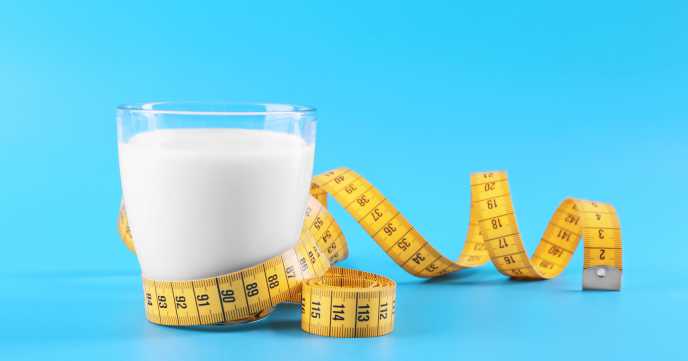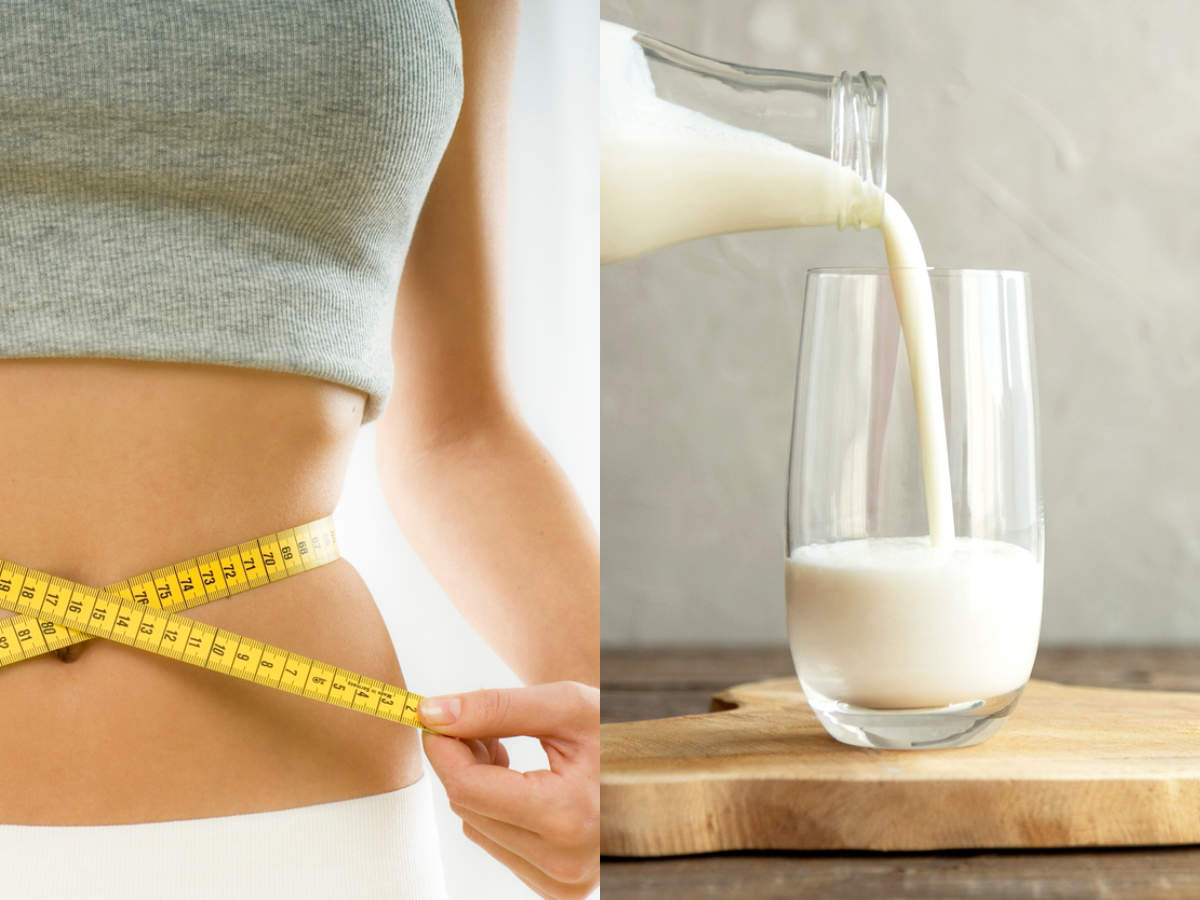Is Milk really Good For Weight Loss? Here Is What We Know

When it comes to shedding those extra pounds, individuals on a weight loss journey often find themselves questioning their dietary choices, including whether or not to include milk. Milk, a staple in many households, is not only a source of nourishment but also a subject of debate in the context of weight loss. In this comprehensive guide, we will delve into the world of cow's milk and explore how it fits into a weight loss diet plan.
Nutrition Facts of Milk

Before we address the weight loss aspect, let's take a closer look at what cow's milk brings to the table in terms of nutrients. A standard glass (200 grams) of cow's milk with 3% fat contains:
- Calories: 120
- Protein: 6.2 grams
- Carbohydrates: 9 grams
- Fat: 6 grams
- Sugar: 9 grams
- Calcium: 250 mg
Moreover, milk is a treasure trove of essential nutrients, including phosphorus, vitamin A, vitamin D (in fortified products), riboflavin, vitamin B12, potassium, zinc, choline, magnesium, and selenium. It's a nutritional powerhouse, boasting nearly every nutrient your body requires.
According to the Dietary Guidelines for Indians, cow's milk is recommended for several reasons:
- Bone Health: Milk is an excellent source of biologically available calcium, crucial for building strong bones.
- Protein: Milk proteins are valuable supplements, particularly for vegetarian diets.
- Vitamins A and D: Milk is rich in fat-soluble vitamins A and D. Fortification is essential in India due to widespread deficiencies.
- Skimmed Milk: Skimmed milk is recommended over whole milk.
- Vitamin B12: For strict vegetarians, milk is the primary source of vitamin B12.
Does Milk Cause Weight Gain?
One of the primary concerns regarding milk is its fat content, which is often associated with weight gain. While low-fat and skimmed versions are available, it's essential to understand that the presence of fat in milk does not automatically translate to weight gain. Studies examining the impact of full-fat dairy products on weight have failed to establish a direct link between their consumption and weight gain. Recent research even suggests that milk fat does not significantly increase the risk of cardiovascular disease.
In summary, there's no need to be overly concerned about milk causing weight gain, as long as it is consumed in reasonable quantities as part of a balanced diet.
Does Milk Help with Weight Loss?
Surprisingly, research has extensively explored the potential benefits of milk in aiding weight loss. Here's what we currently know about milk's role in weight management:
- Satiety: The high protein content in milk helps individuals feel full for more extended periods, potentially preventing overeating.
- Calcium: Milk is rich in calcium, and studies suggest that high dietary calcium levels promote fat breakdown and inhibit fat absorption in the body. Calcium from dairy products appears to have a more significant impact than dietary supplements.
- Weight Maintenance: Studies involving middle-aged and elderly women have linked the consumption of high-fat dairy products with less weight gain and a reduced risk of obesity.
In light of this evidence, it's clear that milk can be a valuable ally in your weight loss journey. Its protein and fat content contribute to feelings of fullness, which can curb snacking and overeating.
Benefits of Milk for Weight Loss
Milk offers several advantages for those seeking to shed pounds, primarily due to its protein and fat content:
Protein in Milk: Maintaining a higher level of protein in your diet is essential for healthy weight loss while preserving muscle mass. Adequate protein intake also boosts calorie burning, and milk's protein content plays a significant role in this process. Higher protein levels enhance satiety, reducing overall calorie intake.
Fat in Milk: Whole cow's milk contains about 4% fat, comprising a mix of saturated, monounsaturated, and polyunsaturated fats. This fat profile is considered healthy and contributes to the feeling of fullness, thus preventing overeating.
Wholesome Nutrition: Milk's rich nutrient profile makes it an excellent addition to your weight loss diet. It provides nearly all the essential nutrients your body needs, making it a smart choice for balanced nutrition while keeping calorie intake in check.
How to Incorporate Milk into Your Weight Loss Diet
Milk is versatile and can be easily integrated into your daily diet. Besides drinking it as is, here are some ideas to make milk a part of your weight loss plan:
-
Smoothies: Milk serves as an ideal high-protein base for healthy smoothies. Combine it with vegetables and a small amount of fruit to create a nutritious and filling snack.
-
Chai & Coffee: Adding milk to your morning coffee or tea infuses your drink with beneficial nutrients.
-
Oats or Overnight Oats: Replace water with milk when preparing your morning oats or soaking them overnight for a tastier and more nutritious alternative.
-
Soups: Enhance your favorite soup recipes with milk to boost flavor and nutrition.
-
Turmeric Milk (Haldi Doodh): Turmeric and pepper combined with milk, especially when experiencing symptoms of cough, cold, or flu, can be soothing and beneficial.
Is Drinking Milk at Night Good for Weight Loss?
Ayurvedic tradition suggests that cow's milk is best consumed in the evening, as it is believed to induce sleep and is heavy to digest. However, there is limited scientific evidence to support this claim. There is no definitive research indicating that drinking milk at a specific time of day offers particular weight loss benefits.
It's worth noting that drinking milk after exercise can support muscle growth, fat loss, and recovery due to its high protein content. The best time to consume milk ultimately depends on your personal schedule and needs. Consider your daily routine and goals when determining when to incorporate milk into your diet for optimal weight management and overall health.

While various plant-based milk alternatives are available, cow's milk remains the most researched and recommended choice for weight loss. Its rich nutrient profile and extensive body of research make it a strong contender in the quest for healthy weight management.
In conclusion, milk is a nutritionally dense beverage that can be a valuable asset in your weight loss journey. Unless you have specific dietary restrictions, such as lactose intolerance, there is no need to eliminate milk or milk-based products from your diet. Cow's milk, when consumed in moderation, can be a healthy and essential component of a balanced diet.
Remember that weight loss is a multifaceted journey, and the Daily9 system offers a practical approach tailored to the unique challenges faced by Indian men and women. Emphasizing quality nutrition, healthy habits, and balanced diets, this approach sets you up for sustainable weight loss and improved overall health.


